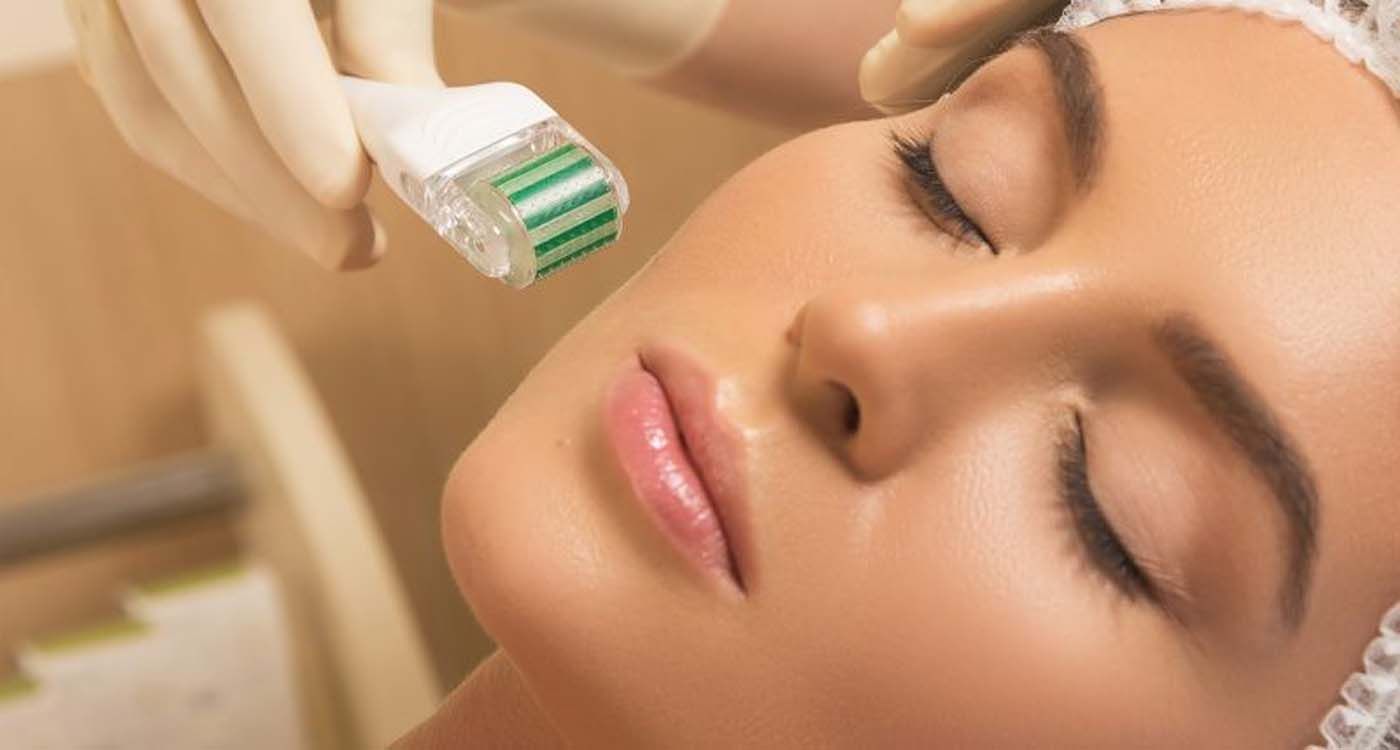- Home
- Highlights
- Mesotherapy: Radiance Boost or Overhyped Procedure?

©Shutterstock
Vitamins, hyaluronic acid and trace elements: mesotherapy promises an instant glow through micro-injections into the skin. This trendy procedure sits at the crossroads of wellness and marketing, yet its actual effectiveness remains uncertain. Is it a genuine boost or merely a placebo effect? Experts advise caution, including Professor Roland Tomb, Honorary Dean of the Faculty of Medicine at Saint-Joseph University of Beirut and dermatologist-allergist at Hôtel-Dieu de France.
A tired-looking face, lacking radiance, paired with the promise of an immediate “refresh:” mesotherapy has become a staple in aesthetic clinics, praised for its micro-injections of revitalizing cocktails. The concept is simple: tiny amounts of vitamins, non-crosslinked hyaluronic acid, trace elements or peptides are injected into the upper layers of the dermis. The goal? To boost hydration, revive the skin’s natural glow and stimulate collagen production by fibroblasts, all without altering facial volume or freezing facial expressions.
A typical session generally lasts 15 to 30 minutes, during which a fine needle deposits the mixture into dozens of micro-points. The procedure is mostly painless, or only mildly uncomfortable, and normal activities can be resumed immediately, aside from some fleeting redness or minor bruising. Patients leave with the promise of a fresher-looking face, plumper skin and sometimes a subtle “glow” that appeals to those who favor natural beauty.
Yet, behind this aura of well-being, mesotherapy remains a superficial technique: it does not lift facial features, smooth deep wrinkles or affect the underlying structure of the face. Its effectiveness depends on skin type, age, lifestyle and the chosen protocol. Results are temporary, lasting three to six weeks, sometimes less. Sessions must therefore be repeated regularly, raising questions about the cost–benefit ratio for a treatment with short-lived effects.
Among medical professionals, opinions remain divided. Some praise mesotherapy for its effects on hydration and radiance, noting a “boost” effect that can be useful before an event or during seasonal changes. Others consider the effect largely subjective – akin to a placebo – and highlight the lack of robust studies proving a significant impact on skin aging. It is also important to distinguish aesthetic mesotherapy, which is very superficial, from medical mesotherapy used to relieve certain muscle or joint pains – the protocols and products are entirely different.
In practice, mesotherapy is best suited for those seeking a “fresh-faced” effect without surgery, visible changes or social downtime. Its appeal lies in being a quick “boosting” treatment with minimal after-effects. However, it cannot replace fillers, deep remodeling techniques or a healthy lifestyle.
Mesotherapy fits the trend of instant treatments, it is effective for a temporary glow, but limited for anyone aiming for genuine rejuvenation. A quick radiance boost? Yes. An anti-aging miracle? No. Careful judgment remains the best ally for needle enthusiasts.
FAQ: What You Should Know Before Trying Mesotherapy
How long do the effects last?
Typically, three to six weeks. An initial protocol often includes three to five closely spaced sessions, followed by monthly or bi-monthly touch-ups.
Is it risky?
Risks are minimal: redness, slight bruising or a tingling sensation. Infections are extremely rare, provided strict aseptic techniques are observed.
Can mesotherapy be combined with other aesthetic treatments?
Yes. Mesotherapy can be performed before or after Botox, hyaluronic acid fillers, chemical peels or laser treatments. The protocol should always be tailored by the physician.
Can it be used on the body?
Absolutely. Some formulations target the scalp (for hair loss), the décolleté or even cellulite treatment. Results remain moderate and vary depending on the area treated.
What is the cost in Lebanon?
A session of aesthetic mesotherapy typically ranges from $80 to $200, depending on the cocktail composition and the practitioner’s reputation.
Which Active Ingredients Are Used in Aesthetic Mesotherapy?
- Non-crosslinked hyaluronic acid (hydrates the skin without adding volume).
- Vitamins A, C, E, B complex.
- Trace elements, zinc, selenium, copper.
- Amino acids, peptides and sometimes coenzyme Q10 or antioxidants.
Each formula claims to enhance radiance and firmness, while targeting oxidative stress. However, none are miracle solutions, and their effectiveness depends on dermal quality and the regularity of sessions.
Read more




Comments